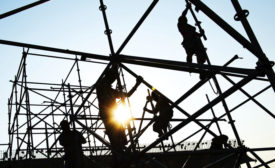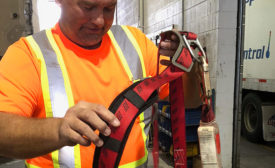Government Safety Regulations
Invest in slips & falls protection
Safety footwear and fall protection protect truckers from specific hazards
June 19, 2019
Never miss the latest news and trends driving the safety industry
eNewsletter | Website | eMagazine
JOIN TODAYCopyright ©2024. All Rights Reserved BNP Media.
Design, CMS, Hosting & Web Development :: ePublishing









